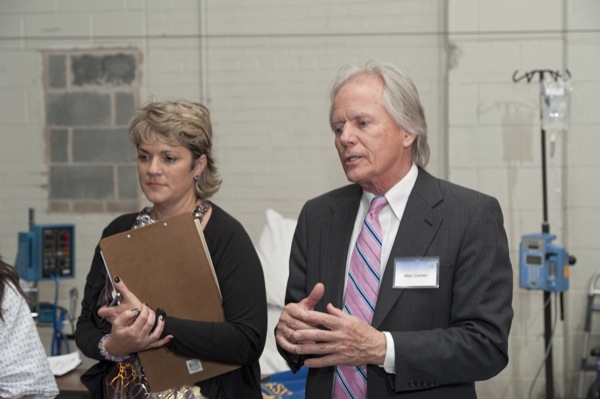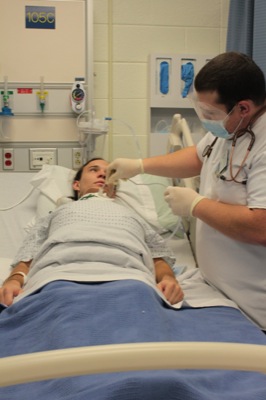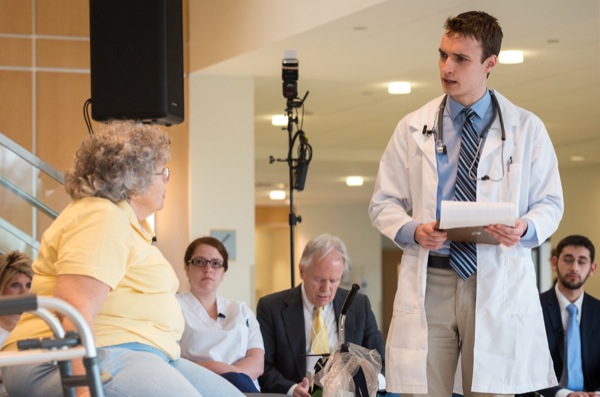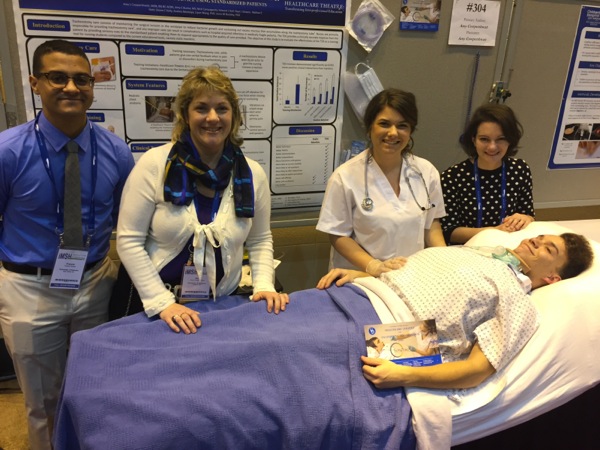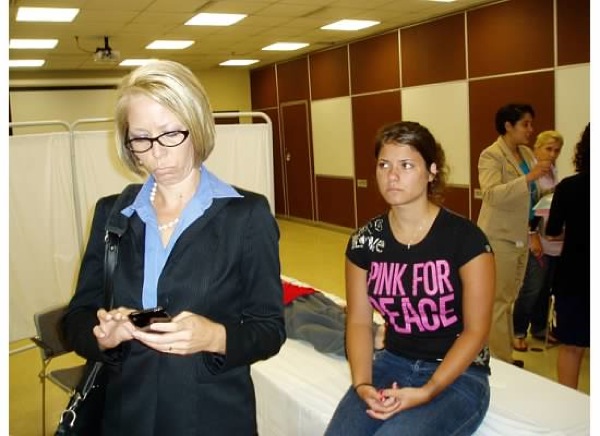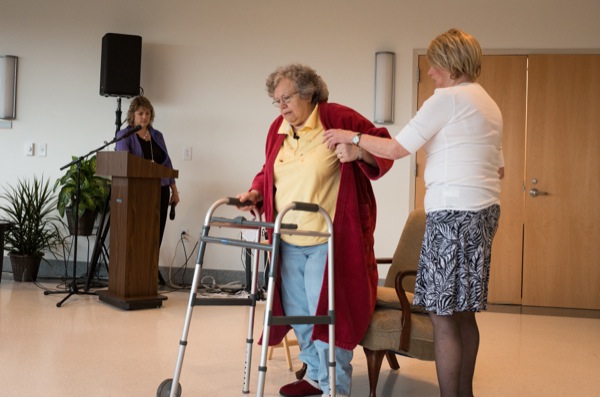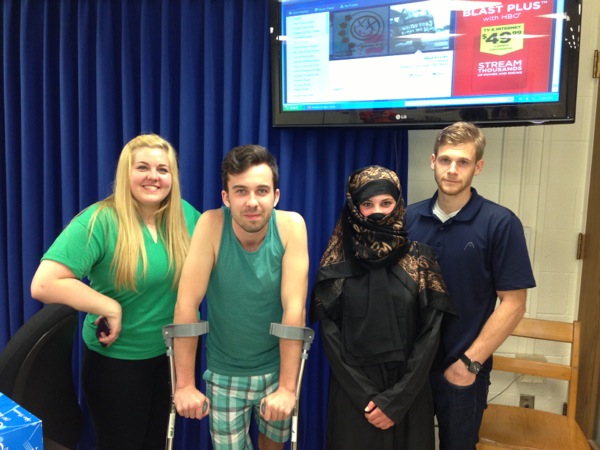Collaborative healthcare
Collaboration across the colleges: Healthcare Theatre maximizes interprofessional partnerships
5:56 p.m., Oct. 7, 2015--Universities get an inside look into the University of Delaware’s one-of-a-kind Healthcare Theatre Program in a recent article published in Clinical Simulation in Nursing. Capitalizing on the talent in the Department of Theatre, the program puts healthcare students and outside professionals into simulated “scenarios,” which teach everything from delivering bad news to culturally competent care.
With invaluable feedback from the patients’ perspective, this pedagogical tool has proven extremely effective in teaching patient care as well as how to handle difficult situations. Rave reviews across campus gave the University of Delaware authors the impetus to write the article.
Campus Stories
From graduates, faculty
Doctoral hooding
“With three or more disciplines in the room, these students receive experience for their own specialty, but also gain an appreciation for the knowledge of other fields of study,” says School of Nursing instructor and principal investigator Amy Cowperthwait.
Typically, interprofessional education is littered with many barriers, but, if there was ever a posterchild for sustained collaboration, it’s Healthcare Theatre. The journal article demonstrates to other schools how to incorporate interprofessional education and do so without major curricular changes or significant burdens on faculty. With every new healthcare “scenario” presented to a new audience, the program’s popularity increases, which is great news, but can put a strain on the budget.
“If new colleges, departments and programs witness the benefit, they are more willing to contribute time and resources,” explains Cowperthwait.
Another way the authors advise meeting increased demand is to expand its circle of influence beyond academia. In Healthcare Theatre’s case, clinical practice and state agencies made a logical partner. With increased importance on patient-centered healthcare, area healthcare organizations are bringing in the University of Delaware program. Not only is the program paying for itself, but, collaborating with the Lerner School of Business on business plans, Healthcare Theatre is bringing money back to UD.
The program originally started as a partnership between the Department of Theatre and College of Health Sciences and has since extended its arms to new disciplines — including business, engineering and medical anthropology. And the collaboration has provided symbiotic learning opportunities.
“From a medical anthropology perspective, Healthcare Theatre was a chance for students to take on something more applied,” says assistant professor and co-author Melissa Melby. “Our students have provided the theatre and healthcare students with more and more cross-cultural scenarios, so that when students graduate, they’re ready for culturally diverse situations.”
In fact, alumni continue to write thank you emails to Melby and the other professors about how the unique program has better prepared them for real-life situations. As co-author Allan Carlsen explains, the program highlights the advantages of working in a major research University.
“Online education seems to be all the rage, but, through our lectures and live performances for new audiences, we’ve added fantastic new partners from all over the University, demonstrating the tremendous value of an on-campus education,” says Carlsen, director of Healthcare Theatre and assistant professor in the theatre department. “If you read through the ‘Delaware Will Shine’ initiative, Healthcare Theatre is the living embodiment of the interdisciplinary work that the University envisions.”
These UD educators aren’t worried about what they don’t have. Without a local medical school, the program focuses on the resources available both at the University and at area teaching hospitals.
“Just because you don’t have a medical school in your state does not absolve you from the responsibility to conduct simulations and educate across professions,” explains Cowperthwait. “There are people in your college and your community that are so valuable, but you have to think outside the box.”
Article by Dante LaPenta






